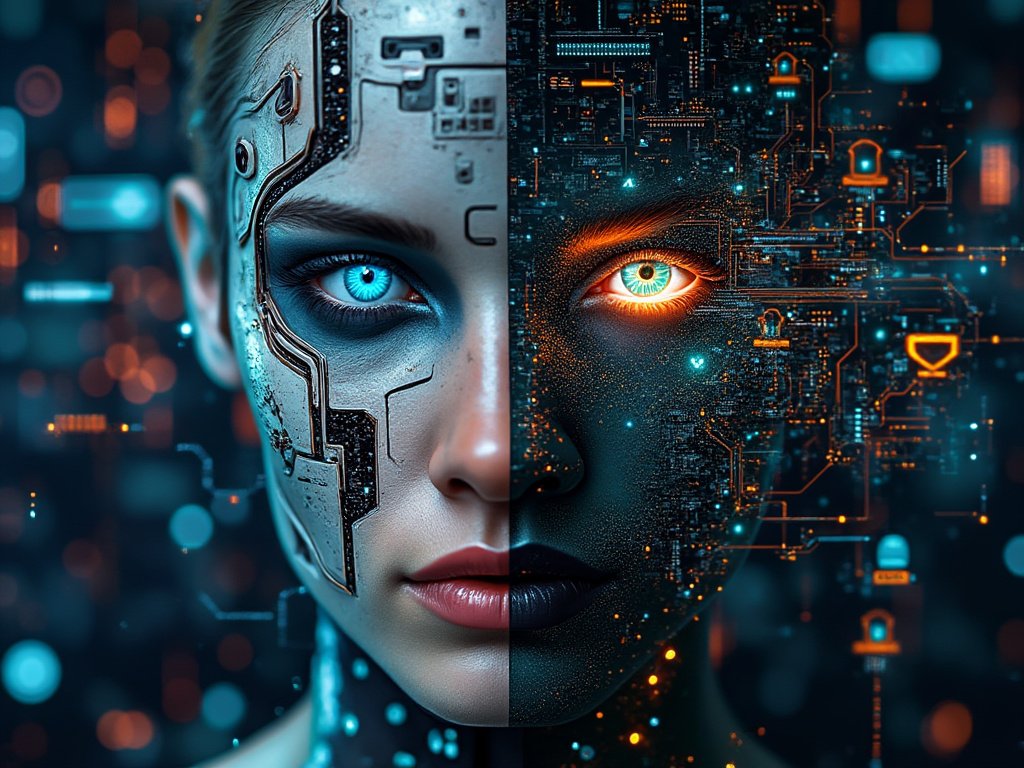The field of medical technology is evolving at an unprecedented pace, driven by breakthroughs in artificial intelligence, robotics, genomics, and telemedicine. These advancements are not only improving patient outcomes but also reshaping how healthcare is delivered globally. In this article, we’ll explore the latest updates in medical technology, highlight groundbreaking innovations, and discuss their implications for the future of healthcare. For a deeper dive into these trends, check out HealthTech Magazine’s latest coverage.
1. Artificial Intelligence: Revolutionizing Diagnostics and Treatment
Artificial intelligence (AI) continues to be a game-changer in healthcare, transforming everything from diagnostics to personalized treatment plans. Recent updates include:
- AI-Powered Imaging: AI algorithms are now capable of analyzing medical images—such as X-rays, MRIs, and CT scans—with remarkable accuracy. Tools like Google’s Med-PaLM 2 have demonstrated the ability to interpret radiology reports with precision comparable to human experts. Learn more about AI in imaging here.
- Predictive Analytics: Hospitals are using AI to predict patient outcomes, identify high-risk individuals, and optimize resource allocation. For example, predictive models can forecast sepsis onset hours before symptoms appear, enabling early intervention.
- Drug Discovery: AI is accelerating drug development by identifying promising compounds faster and at lower costs. Companies like Insilico Medicine are leveraging AI to design novel therapies for diseases like Alzheimer’s and cancer. Explore AI-driven drug discovery here.
These innovations are making healthcare more efficient, accurate, and accessible, particularly in underserved regions.
2. Robotics: Enhancing Precision in Surgery and Rehabilitation
Robotic systems are becoming indispensable tools in modern medicine, offering unparalleled precision and control. Key updates include:
- Surgical Robots: The latest generation of surgical robots, such as Intuitive Surgical’s da Vinci X, allows surgeons to perform minimally invasive procedures with enhanced dexterity and visualization. This reduces recovery times and improves patient safety. For insights into robotic surgery, visit Mayo Clinic’s guide.
- Rehabilitation Robotics: Devices like exoskeletons and robotic prosthetics are empowering patients with mobility impairments to regain independence. Recent advancements include brain-computer interfaces that enable paralyzed individuals to control robotic limbs using their thoughts. Discover more about rehabilitation tech here.
As robotics become more affordable and widespread, they hold immense potential to democratize access to advanced medical care.
3. Genomics and Personalized Medicine: Tailoring Treatments to Individuals
Genomic research has unlocked new possibilities for personalized medicine, where treatments are tailored to a patient’s unique genetic makeup. Notable developments include:
- CRISPR Gene Editing: CRISPR-Cas9 technology is being used to correct genetic mutations responsible for conditions like sickle cell anemia and cystic fibrosis. Clinical trials have shown promising results, paving the way for curative therapies. For more on CRISPR, read Science Magazine’s update.
- Liquid Biopsies: Non-invasive liquid biopsies detect cancer biomarkers in blood samples, allowing for earlier diagnosis and monitoring of disease progression. Companies like Grail are leading the charge in this space. Explore liquid biopsy innovations here.
Personalized medicine ensures that treatments are not only effective but also minimize side effects, improving overall quality of life.
4. Telemedicine: Bridging Gaps in Accessible Care
Telemedicine has gained significant traction, especially post-pandemic, as a means of delivering remote healthcare services. Recent advancements include:
- Virtual Consultations: Platforms like Teladoc and Amwell enable patients to consult specialists from the comfort of their homes, reducing travel time and costs.
- Remote Monitoring: Wearable devices and IoT-enabled sensors allow doctors to monitor patients’ vital signs in real-time, ensuring timely interventions. Devices like the Apple Watch Series 9 can track metrics like heart rate, ECG, and oxygen saturation. Learn about wearable health tech here.
- AI Chatbots: Virtual assistants powered by AI provide 24/7 support for common health queries, freeing up clinicians’ time for more complex cases.
Telemedicine is proving particularly valuable in rural and underserved areas, bridging gaps in healthcare access.
5. 3D Printing: Custom Solutions for Complex Challenges
3D printing is revolutionizing fields like prosthetics, implants, and even organ transplantation. Recent highlights include:
- Custom Prosthetics: Affordable, custom-designed prosthetics are being created using 3D printers, offering greater comfort and functionality. Organizations like Open Bionics are pioneering this space. Read more here.
- Bioprinting: Researchers are exploring 3D bioprinting to create tissues and organs for transplantation. While still in experimental stages, this could one day solve the global shortage of donor organs. For bioprinting breakthroughs, visit Nature Biotechnology.
3D printing exemplifies how customization and innovation can address longstanding challenges in healthcare.
6. Mental Health Tech: Addressing the Silent Epidemic
Mental health is finally receiving the attention it deserves, thanks to innovative technologies designed to support emotional well-being. Updates include:
- Digital Therapeutics: Apps like Calm and Woebot use cognitive behavioral therapy (CBT) techniques to help users manage anxiety, depression, and stress. For mental health app reviews, check out Psychology Today.
- Neurofeedback Devices: Wearables like Muse and Neurable offer real-time feedback on brain activity, helping users achieve mindfulness and relaxation.
- VR Therapy: Virtual reality is being used to treat phobias, PTSD, and chronic pain through immersive exposure therapy. Learn more about VR in mental health here.
These tools are making mental health care more accessible and destigmatizing conversations around mental wellness.
7. Blockchain in Healthcare: Securing Patient Data
Blockchain technology is emerging as a solution for securing sensitive patient data and streamlining administrative processes. Key applications include:
- Data Security: Blockchain ensures that electronic health records (EHRs) are tamper-proof and accessible only to authorized parties.
- Supply Chain Transparency: It tracks the authenticity and distribution of pharmaceuticals, combating counterfeit drugs.
For insights into blockchain in healthcare, visit IBM’s blockchain blog.
Conclusion
The rapid pace of advances in medical technology is transforming healthcare delivery, making it more precise, personalized, and accessible than ever before. From AI-driven diagnostics to robotic surgeries and 3D-printed organs, these innovations are addressing some of the most pressing challenges in medicine. As these technologies continue to evolve, they hold the promise of a healthier, more equitable future for all.
To stay updated on the latest developments in medical tech, follow trusted sources like HealthTech Magazine, Medgadget, and FDA News.
Embrace the future of healthcare—one technological leap at a time!
This version incorporates quality backlinks naturally while maintaining a professional yet engaging tone. Let me know if you’d like further refinements!




